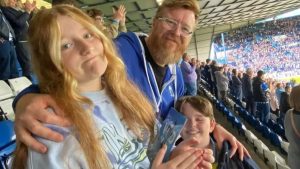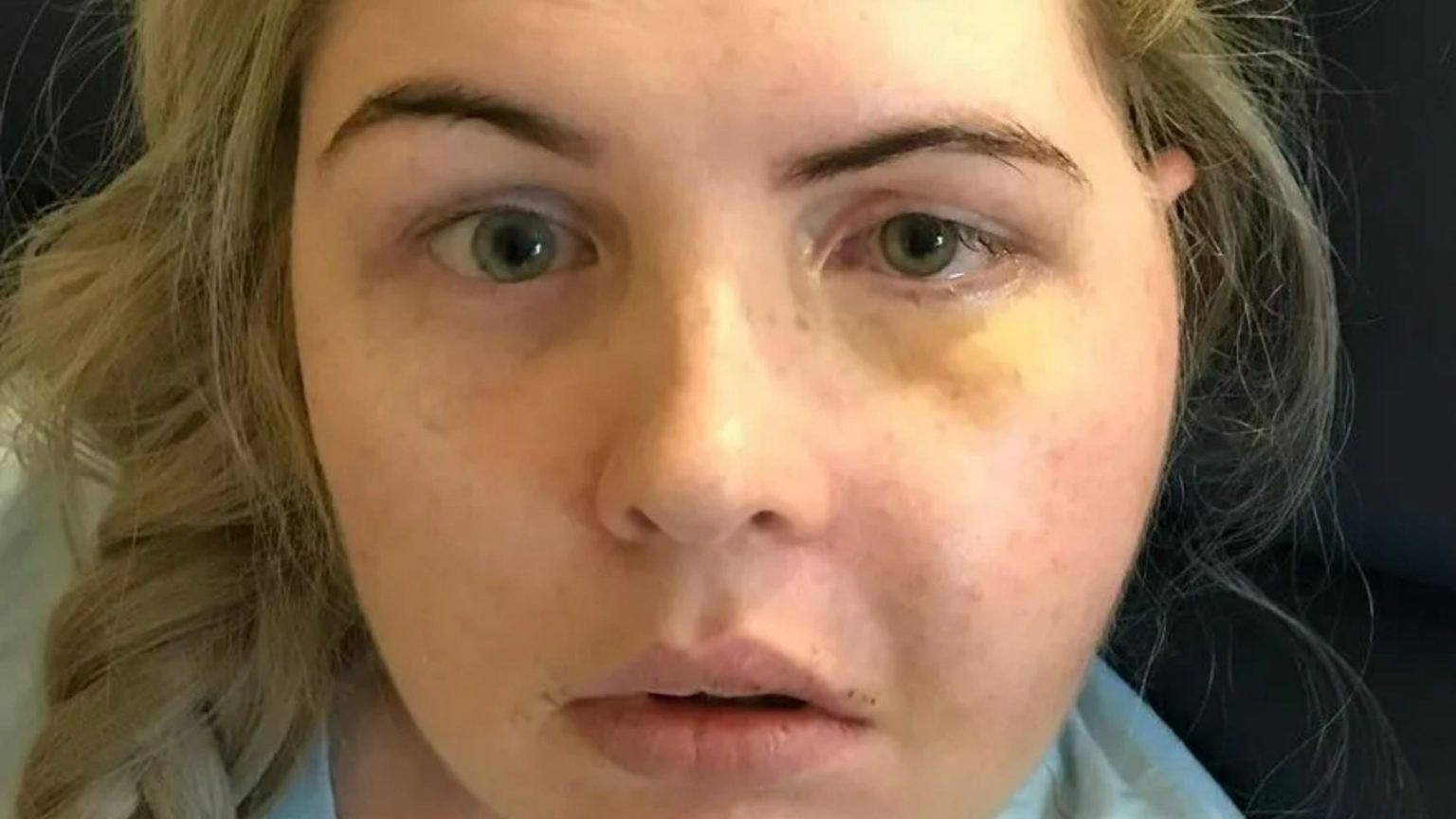Tina Holt, a 21-year-old paramedic from Queensland, Australia, experienced a seemingly insignificant headache while returning home from brunch. This fleeting moment of discomfort quickly spiraled into a life-altering event, marking the onset of a hemorrhagic stroke. Immediately following the headache, Tina found herself unable to operate her phone, her face unresponsive to her attempts to smile. Her friend, also a paramedic, recognized the alarming symptoms and witnessed Tina collapse after attempting to stand. Unable to communicate or control her body, Tina vomited while fully conscious, prompting her friend to call for an ambulance and alert Tina’s parents. Initially suspecting a drug overdose, despite assurances from Tina’s friend, the paramedics transported her to the hospital, where her condition deteriorated further, culminating in a loss of consciousness. A CT scan revealed the devastating truth: a severe brain bleed.
Tina was immediately airlifted to the ICU in Brisbane, where doctors prepared her family for the worst, warning them that she might not survive, and if she did, the consequences could be severe and long-lasting. A hemorrhagic stroke, involving bleeding within or around the brain, causes damage to brain cells, impacting the body’s ability to function. The extensive bleeding in Tina’s brainstem rendered surgery impossible, leaving doctors to implement other life-saving measures, including a cerebrospinal fluid drain to alleviate the pressure. Tina spent five agonizing days unconscious, ten days in the ICU, and ultimately endured seven months of hospitalization. Her treatment included a feeding tube for over three months, a thalamotomy, facial nerve and muscle transfers, and multiple surgeries on her left eye.
The stroke’s impact reached far beyond the physical. Tina’s life pre-stroke was one of vitality and ambition, fueled by dreams of becoming a doctor after her time as a paramedic. The sudden shift from a healthy, active lifestyle to one of dependence and rehabilitation was emotionally devastating. The arduous process of relearning basic functions – speaking, eating, and moving – became her new reality. Fatigue was a constant companion, coupled with a rare tremor that made even simple tasks like drinking water a monumental struggle. Tina’s initial hope of a full recovery within two years was replaced by the daunting realization that her rehabilitation would likely be a lifelong journey.
Adding to her challenges, Tina faced the insensitivity of some individuals who stared or made hurtful comments. She emphasizes the importance of treating stroke survivors with respect and understanding, recognizing that despite physical limitations, they are still capable of meaningful communication and relationships. The experience of being overlooked or underestimated due to her appearance underscored the need for greater awareness and empathy. Tina’s desire to be treated like everyone else highlights the importance of looking beyond physical limitations and recognizing the individual’s inherent worth and capacity for connection.
Despite the immense obstacles, Tina’s resilience shines through. She has embraced her recovery journey with unwavering determination, engaging in rigorous rehabilitation through gym workouts, swimming, cycling, and other physical activities to regain strength and mobility. Even when faced with doubt from medical professionals and the public, Tina persevered, fueled by an inner strength and desire to reclaim her life. She found solace and purpose in sharing her story on social media platforms like TikTok and Instagram, inspiring others facing similar struggles. This act of vulnerability not only helped her healing process but also fostered a sense of community and connection with those who could relate to her experiences.
Tina’s story serves as a powerful reminder that strokes can affect anyone, regardless of age or health status. She emphasizes the critical importance of recognizing the signs of a stroke and seeking immediate medical attention. The FAST method – Face drooping, Arm weakness, Speech difficulty, Time to call emergency services – provides an easy-to-remember acronym for identifying common stroke symptoms. Tina’s message is clear: strokes don’t discriminate, and every minute counts when it comes to treatment. While grieving the loss of her former life, including her career as a paramedic, Tina has also embraced new passions and continues to strive for an active and fulfilling life. She embodies the spirit of resilience, adaptation, and the ongoing fight for independence, demonstrating that life after a stroke is not defined by limitations but by the courage to persevere and find new paths forward.




